Interview with Diana Gabaldon, Part 1

In celebration of the 10th anniversary of Outlandish Observations, I'm very pleased to bring you my first-ever interview with Diana Gabaldon!
Frankly, the idea of interviewing Diana Gabaldon was a little nervewracking for me at first, even though I've known her online since 2007 and we interact almost daily on TheLitForum.com (formerly the Compuserve Books and Writers Community). I've never interviewed anyone before, and it took me a while to decide what questions to ask. I did my best to come up with questions that are somewhat different from the usual things people always ask her. I'm just DELIGHTED with her answers, and I hope you'll enjoy them as much as I did!
(The photo above is from my first meeting with Diana, at a book-signing in Maryland in 2009.)
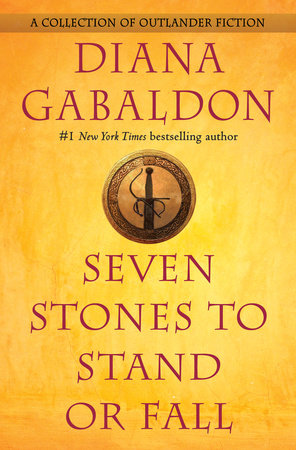
You've published a number of novellas and shorter pieces in the last few years. What do you see as the advantages of the shorter format, for you as a writer?
They're shorter. <g> I.e., I can finish one in much less time than the four to five years it takes for one of the Big Books. Basically, it's a bit of a mental vacation to deal with something that's very interesting, but on a smaller scale--and offers a quicker gratification in completing it. The novellas offer me the opportunity to go explore the byways of minor characters and interesting storylines that lie outside either the temporal or the logistical reach of the Big Books.
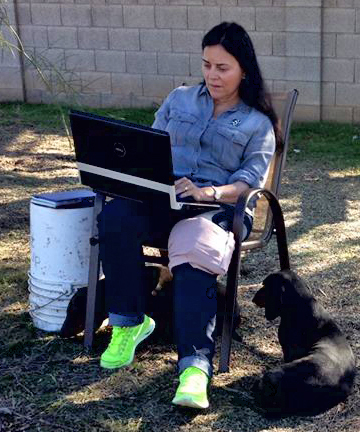
Do you still write in "pieces" when you're working on a novella or short story, or is it more of a straight-line process?
I always write in disconnected pieces, no matter what I’m writing; that’s just how my mind works. (I had one interviewer recently pause for a long moment after I’d answered one of her questions--obviously thumbing down her list--and then say, “I had a lot more questions, but you seem to have answered most of them already, while you were answering the one I asked you.” I apologized <g>, and explained that I inherited my digressive story-telling from my father--he’d begin (usually at the dinner table) with a recollection of someone from his past, and would start telling you a story about them--but every second paragraph or so, something he’d said would start a digression that added social context or personal opinion or associated history or data on location, and then without missing a beat, the story would swerve back onto its main track--until the next digression a minute later.) As I always tell people, “There’s a reason why I write long books; it’s because I like digression.”
You've made very effective use of Twitter and Facebook in recent years, and many fans are addicted to your #DailyLines. How has the rise of social media affected the way you interact with your readers and fans? With your busy schedule, where do you find the time?
Well, social media has sort of grown up around me. Back in 1985, I first went “online” (a concept that really didn’t exist in the popular consciousness yet) when I got an assignment to write a software review for BYTE magazine, and they sent with the software a disk for a trial membership with CompuServe (aside from government services like DARPA, “online” in the mid-80’s basically consisted of three “information services”: Delphi, Genie and CompuServe), so I could poke into the support forum the software vendors had set up there, and mention it in my review.
After writing the review, I had a few hours of free connect time left (in a time when you were charged $30 an hour for using CompuServe—at 300 baud, dial-up), and so I started poking around to see what else was available. I stumbled into the CompuServe Literary Forum.
This was not (as people sometimes assume) a writer’s group. It was a group of people who liked books. There were a few writers there, of course, both established and aspiring, but the main focus was simply on books: reading, impact, thinking in response to reading--and it was also just a fertile ground in which enormous, digressive and fascinating conversations could flourish (there was one truly remarkable conversation that became known as “the Great Dildo Thread,” that went on for months…).
Anyway, that was where social media (which didn’t exist as a concept yet, though plainly it existed in fact) and I met. The next step was my website, established in 1994 (I think I was the first author to build a website for readers--and my eternal thanks to Rosana Madrid Gatti, who generously did the hard work of making and running the site; I sent her material and she’d post it for me (this was a looong time before WordPress and other blogging software made it possible for anybody to communicate directly with the world online).
I did the website mostly in response to reader’s enthusiasm; I got a LOT of mail (regular letters) about the books, from people being complimentary, asking questions, taking issue with various aspects--but all of them wanted to know more: why did Claire do this, where did I find out about botanical medicine, did people really do that…and most particularly--when was the next book coming out.
So the website was a means of answering reader questions--both for the readers who had asked those questions, and for the entertainment of other readers who perhaps hadn’t thought of those questions, but would be interested in the answers. The benefit of only having to type an answer once (many people naturally ask the same questions) was obvious--as was the benefit of being able to inform people of pub dates, book-signings, etc.
So, knowing the benefits of such a channel, when other channels became available--AOL, for instance--I’d use them, at least briefly, and see whether they seemed helpful. Some were, some weren’t--I never bothered with MySpace, and in fact, it took some time for me to try Facebook (which I still use sparingly; I never go anywhere on Facebook other than my own page, and it’s what they call a “celebrity” page, which means that I don’t take “friend” requests. Nor, I’m afraid, can I read the private messages that people kindly leave me there--at the moment, the page has more than 700,000 members (or whatever you call regular visitors), and if only one percent of them send me messages…that’s 7,000 messages. There’s no way I can even read that many messages, let alone respond to them.
Twitter also proved to be very useful; it provides instant access to a lot of people--and more valuable than that, it provides organic replication. If you post something interesting, many, many more people will see it, beyond the people who actually follow you. And it’s very good for making short-term announcements or asking urgent questions, because somewhere in the world, the person who can answer that question is awake and reading Twitter. <g>
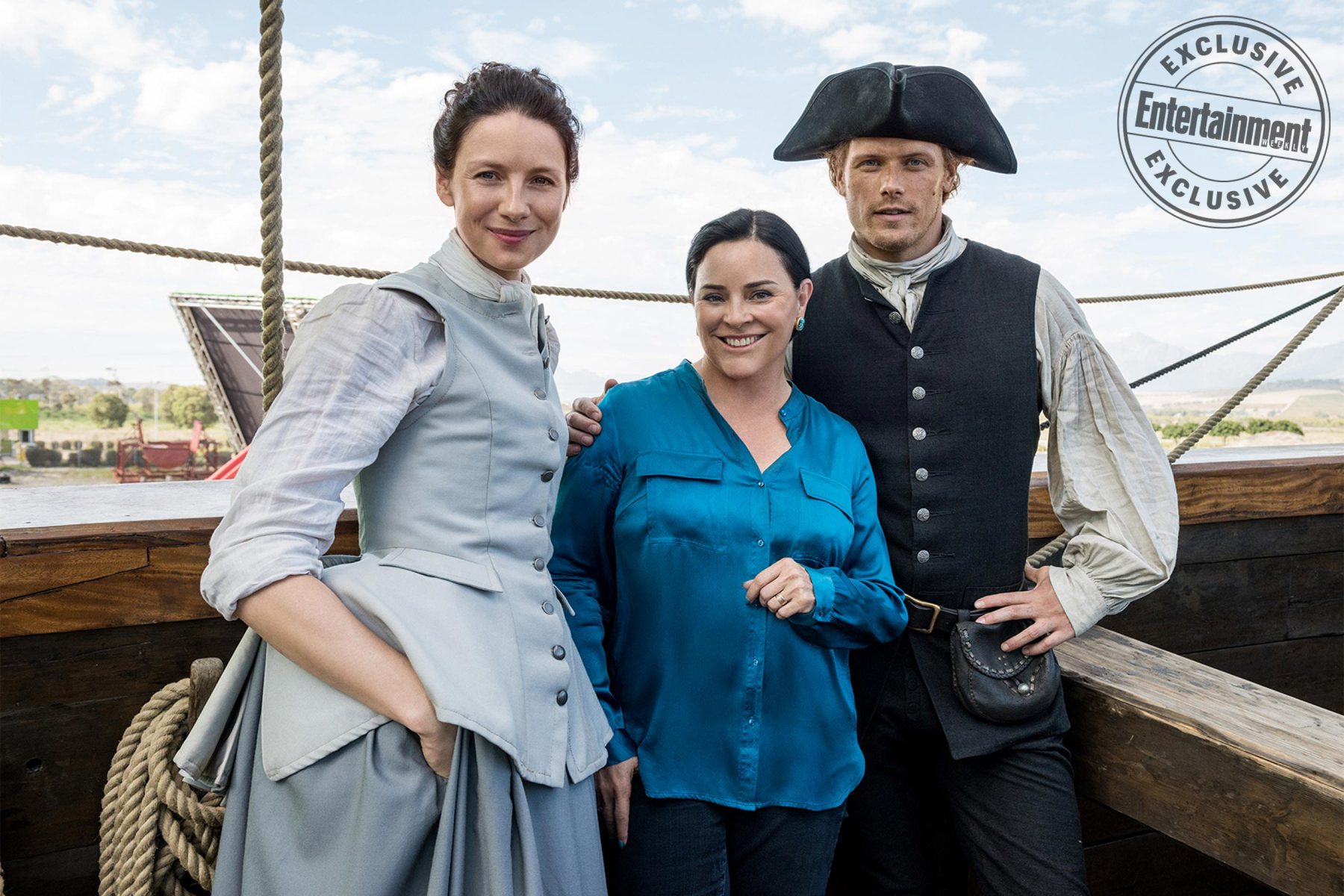
What's the most challenging, or frustrating, or difficult part of your role as consultant on the TV series? (I understand there are things you can't talk about, but can you comment on this in general?)
Well, frustrations are of two types: 1) when a scriptwriter has done something that I think is not consistent with a character’s…er, character, and I can’t get them (“them” meaning not just the scriptwriter, but the production team in general) to change it, and 2) when they’ve shot something absolutely beautiful, in terms of acting, honesty, emotion, etc.--and then cut it out of the finished episode.
What's the most fun part?
The fun lies in seeing something remarkable evolve from a huge number of component parts, day by day by day. It’s like watching a forest grow in stop-motion time that speeds everything up.
Would you be interested in writing another script for the TV show, after BEES is done?
Yes, I would. It was a deeply interesting (if occasionally frustrating) experience. Script-writing is a very collaborative process, in which the script writer ultimately does not have complete control over the final product, which may have been rewritten several times by different people. That’s a very different experience from being a solitary god, as novelists are. <g> But it’s a fascinating experience, both in the consultation and writing (and revision and revision and revision…) and in the eventual final result: the filming. Filming is long, tedious, hard work--but very entertaining.
As the OUTLANDER TV series approaches its fourth season, we're starting to see many more readers who've found your books as a result of the TV show. Aside from the effect on book sales (which must be considerable <g>), I'm interested to hear what you think about that. Do you find that people who found the TV show first tend to have different expectations, or different reactions to the books?
People who’ve read the books first definitely have different reactions to the show <g>, but I don’t think the reverse is really true. I haven’t heard a lot of show-first people express any sense of shock or disapproval as to things happening in the books--they expect to see an expanded version of the story, with a lot more detail and more storylines, and that’s what they get.
Many OUTLANDER fans, including myself, have re-read (or re-listened to) your books many, many times. Do you have a favorite author or authors whose books you re-read often, and if so, what is it about those books that makes them stand up well to re-reading?
Yes, dozens. Right now, I’m re-reading all of Dorothy L. Sayers’s Lord Peter Wimsey novels, for probably the twentieth time. (I continue to enjoy them, but to be honest, I’m re-reading them now because I can put them down easily in order to work.)
James Lee Burke would be another one, though I haven’t re-read his Dave Robicheaux novels as often as Sayers.
And then there are Patrick O’Brian’s Aubrey/Maturin novels--I’ve read the series maybe three times, but listened to it on audio probably twenty times, at least--the reader, Patrick Tull, is fantastic, and the story always holds my interest while dog-walking or gardening.
Like these, all the books I feel are worth re-reading depend on unique and engaging individuals. I like to spend time with these people (and on a lower level, I enjoy seeing just _how_ the author did what they did; knowing as much now as I do about the craft of writing, it’s hard to avoid seeing the techniques in use--a book that can suck me in sufficiently that I _don’t_ notice the engineering is definitely one I can re-read).
------------------
Many thanks to Diana Gabaldon for taking the time to answer my questions! Part 2 of this interview, in which Diana explains her writing process in more detail, is here.

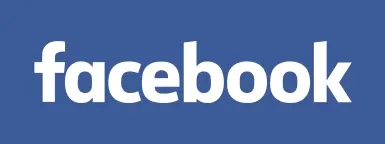



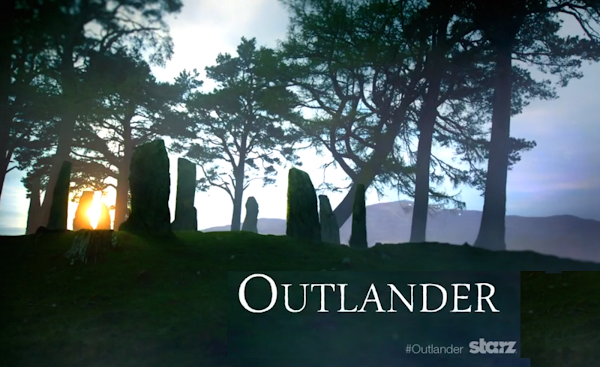


It seems like only yesterday! What a journey it has been!\Here's to 10 more!
I've been looking forward to this.
Well done with the questions, can't wait for the rest.
:-)